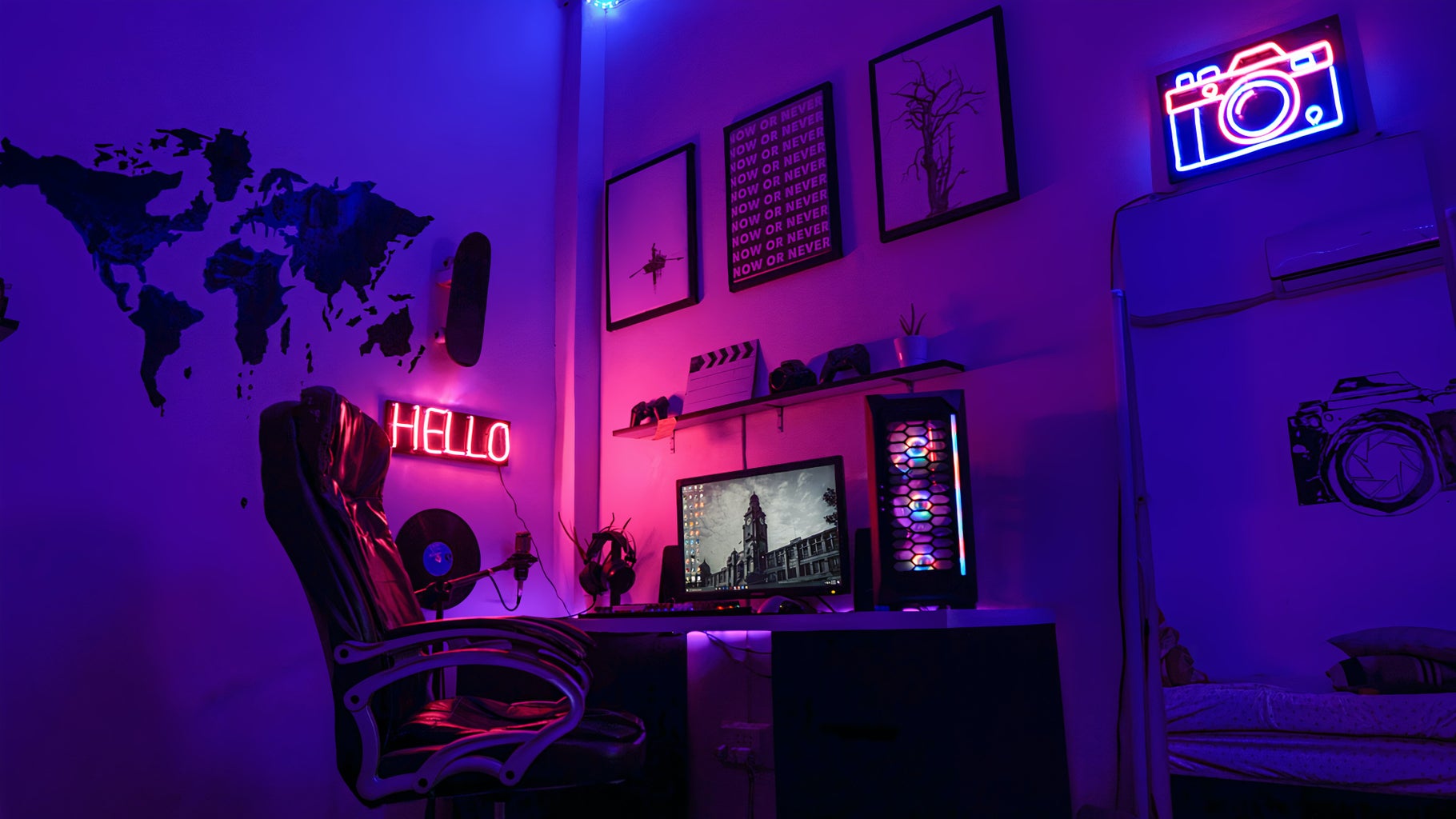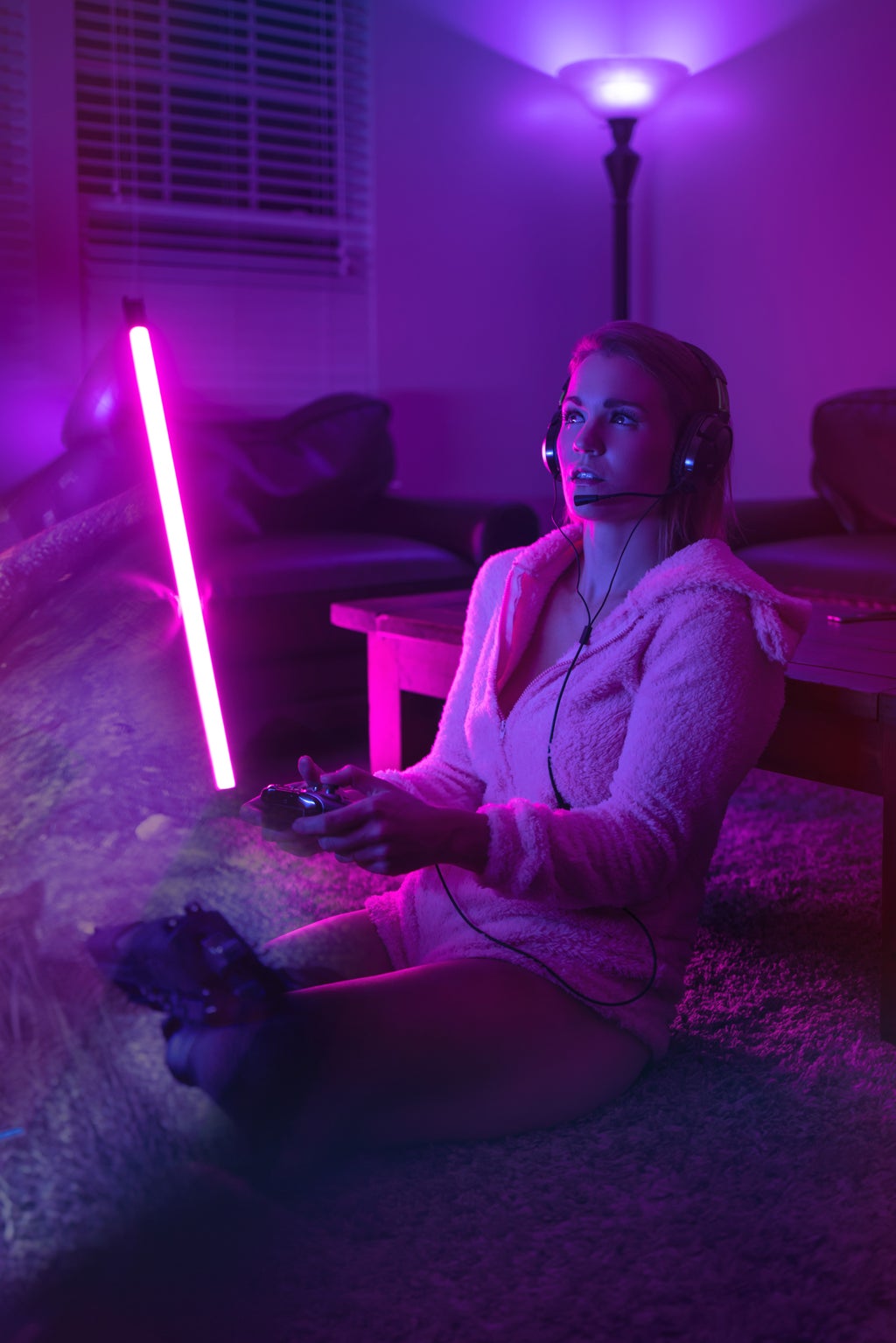“I think I want to start playing Valorant.”
It was Spring 2020, the middle of the pandemic, and I was bored out of my mind. My social circle had all moved our in-person activities online, which usually consisted of meeting up on Discord voice chats and playing video games that we bought at discounted prices on Steam. After playing a few rounds of Jackbox and Among Us, my guy friends would go play the popular FPS game (thank you John for clarifying that it is not an RPG).
J.T., my younger brother who also played the game, had frowned and sat me down in my room while he stood by the closet.
“It’s a great game,” he had said. “But people are toxic out there. You really have to learn how to communicate, and act quickly, especially cause . . . ” he paused.
“Especially because you’re a girl,” he had finished.
At the time, I found it interesting that my brother, who I normally viewed as a rebellious teenager, was aware of the gender dynamics in the world of gaming. And on top of that, he felt it was important to make his older sister aware. To protect her.
Equality in the world of gaming
Disclaimer: These are my own personal thoughts, and they definitely do not represent the entire community of women. To our female gamers, professionals, amateurs and all in between, we cheer loud and proud for you! A shout out to those working in game development too!
According to a survey conducted by the Entertainment Software Association of Canada, 23 million Canadians were playing video games in 2020. More importantly, the ratio between both genders was equally 1:1. This is a huge difference compared to a survey done in 2009, where males dominated by making up 64.3% of gamers while only 34.9% were females. It’s wonderful that gaming has become an activity that is no longer defined by gender, compared to eleven years ago.
Not surprisingly, ESAC found that 72% of adult gamers play with their friends, 35% play with their siblings, 34% play with their significant others and 15% play with their parents. To summarize, video gaming is an environment that has connected people to each other, especially during the pandemic.
Interestingly, 58% of 18-34 year-old females considered themselves as gamers, in comparison to 82% of males in the same age group. Although there is an equal percentage of females and males that participate in video games, far fewer females consider themselves gamers in that regard. At first thought, I wouldn’t consider myself a gamer either, simply because I don’t play that often to categorize myself in that way, nor do I play that much of a variety.
That being said, it’s interesting to think about. What qualifications does a person need to be called a gamer? How long would you have to be playing daily? Could you be super invested in one game, or do you need to know multiple games? Can it not only consist of enjoying playing games, or do you also have to be skilled?
The definition of a gamer goes beyond the time spent, the expertise, and most of all, what gender you pertain to. Be it male, female, non-binary, etc.
Perhaps it’s the stigma against female gamers in the past, that has been popularly been memed and hypersexualized in social media spaces, that they are not taken seriously. There’s also the misconception that video games cause players to become violent, an adjective that is not commonly associated with women. With these thoughts in mind, there may be hesitation to ever associate the word “gamer” with a personal identity.
I usually prefer games that are laid back and creative, such as Stardew Valley or Minecraft. There’s nothing like cultivating your own farms and interacting with the homies. I also don’t mind strategy games like Teamfight Tactics or fun fighting games like Pummel Party or GangBeasts. It’s just an all out silly brawl fighting each other; it doesn’t matter who wins or loses. When I don’t want to go on my PC, I usually play Candy Crush, Zentris, or Wordscapes.
When it comes to team games, there’s that responsibility and pressure to do well for the team to function. Basically, there’s pressure not to mess up and cost you the game. I used to be more concerned with losing and causing disappointment for my teammates, instead of enjoying the playthrough. Thankfully, those negative feelings have decreased, because of the people I’m lucky to have as friends.
IT’S ALL IN GOOD FUN
This conception has been changing, with more and more video games being developed and catering to all, regardless of gender. More notably, due to the pandemic, these video games have built bridges between friends and family to form a stronger community. They center on their shared enjoyment, regardless of success (although it’s always great to achieve victory). Healthy and supportive environments create spaces that encourage everyone to participate and return to play more. After all, that’s what video games are all about: to have fun.
After that conversation with my brother, I didn’t end up downloading Valorant until some coaxing from my friends Jaimie and Valentina. I admit it’s not my type of game. You have to constantly be aware of your surroundings, be ready to immediately click on keys to launch the right attacks and coordinate with your teammates to win. Although I’ve gotten comfortable with one agent, there is definitely room for improvement.
Nevertheless, no one ever deterred me from joining in. My friends were encouraging and had some light teasing, such as when I failed to aim with Sova’s ultimate attack. “I think I want to rip out my eyes,” my friend Paul had joked. I had blasted the electrifying arrow while I was zoomed in to the boxes in front of me, narrowing my vision. But hey, I got the kill (and died right afterwards).
“If you get the kill, who gives a f*ck how it happened?” said Valentina lovingly. She shortly shared my success in our group chat afterward.
Even as I type this article, I hear my friends chatting while they help her. The three of them had been killed in the game and she was the only one that had survived.
“To your left, to your left, to your left,” says Christian repeatedly.
Valentina screams multiple explicit swear words.
“Okay, now use your ult- that’s not your ult,” says John, and all four of them break into laughter.
“It’s okay,” Jaimie reassures her. “We won.”
My friends ask if I would like to join in a later match, but I decline the invite, needing to finish the rest of my coursework. “I’ll join next time,” I promise them.
I’m aware that the online gaming community is not always a friendly place. I have had my fair share of toxic players. In those situations, the report button is a wonderful tool.
But there are also good people out there that make sure that these spaces are welcoming. It’s important that we help each other become comfortable enough to participate, regardless of victory or loss. I also have had perfect strangers in chat informing me what to do, encouraging me to go forward instead of hiding back. Most of all, my friends, who instead of doing their homework, always ask if I’m down to play a quick match. Sometimes, I say yes.
The team of agents goes off to the next round as Defenders, in both good sportsmanship and friendship.





